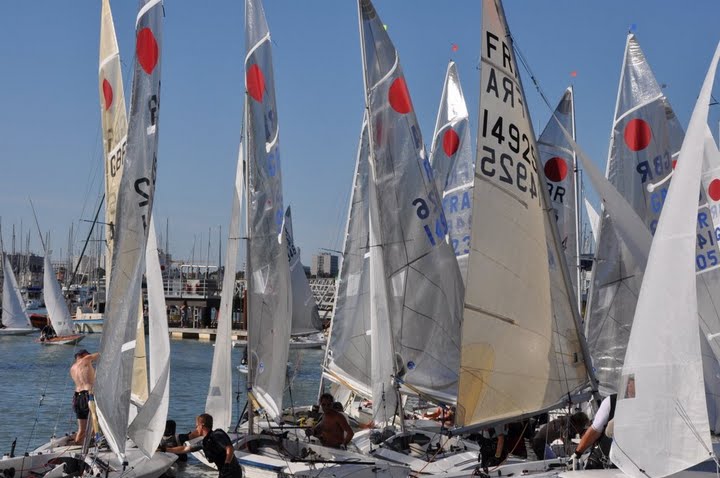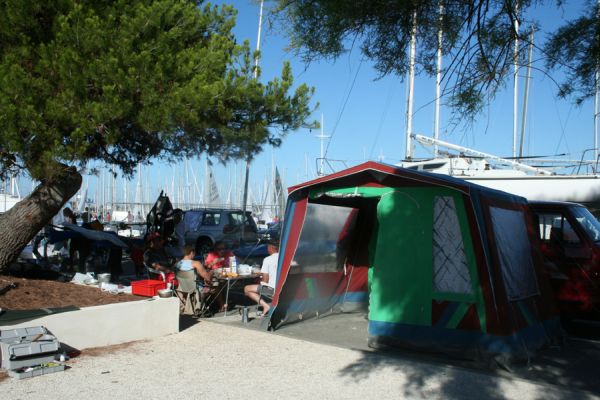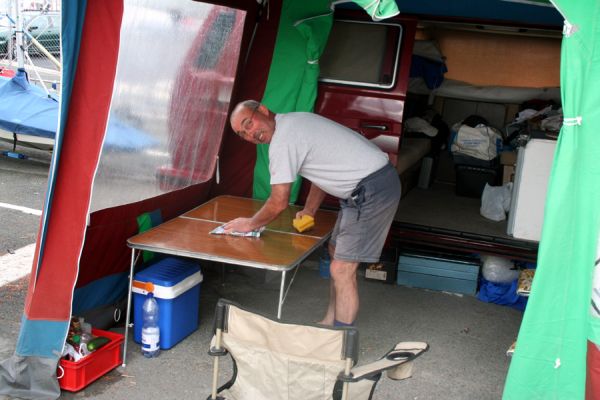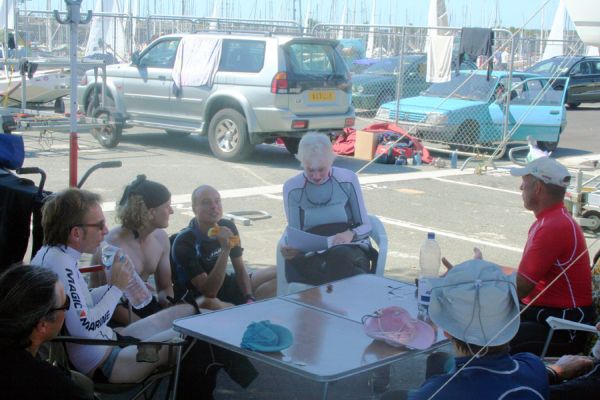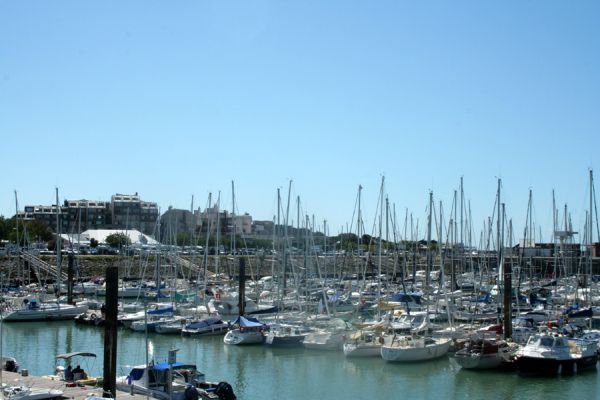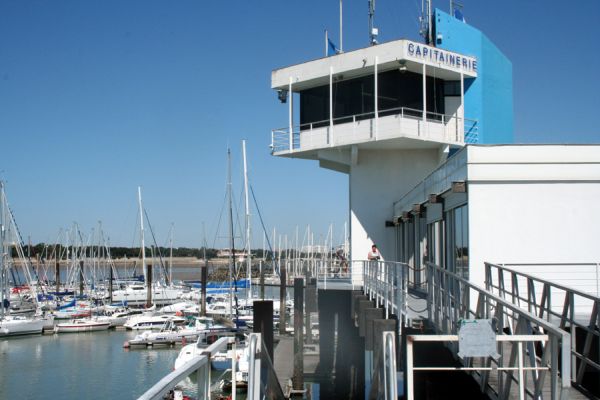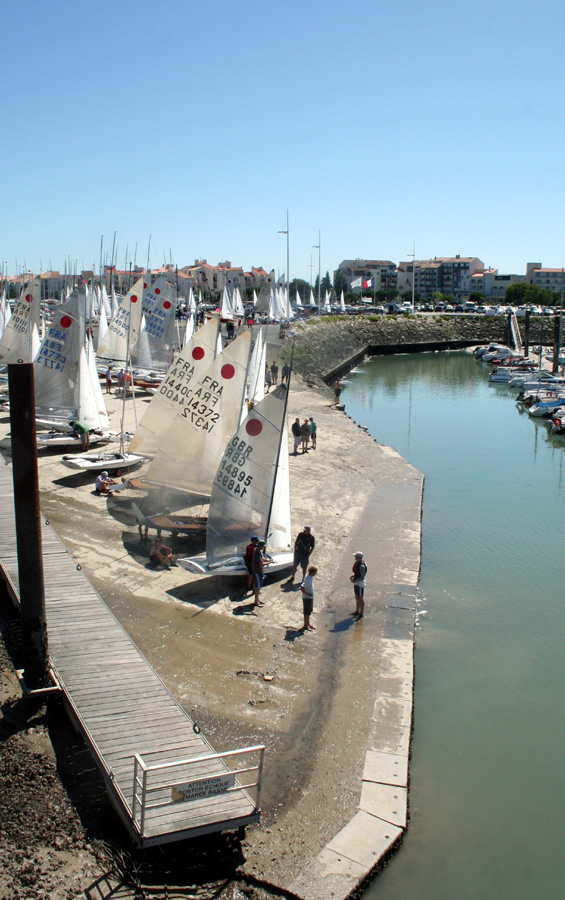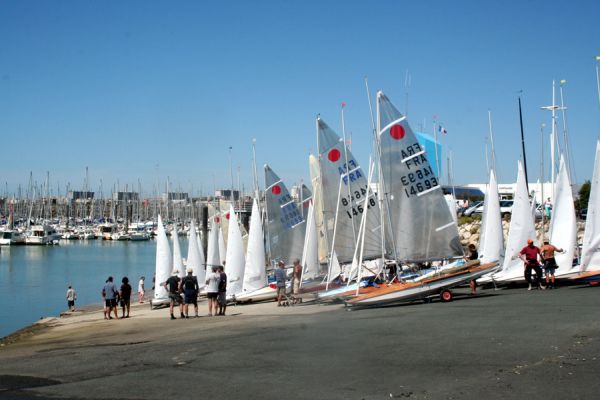
We caught up with Chips on his return to the UK to find out more about their regatta and whether the win had been as straightforward as the results made it look?
OR: Congratulations on your second Fireball World Championship victory. How does it feel? Has it sunk in yet and how big was the party when you got home?
CH: It feels great to be Fireball World Champion again. It was a different emotion to the last time as Vyvo and I had trained hard both on the water, but also very hard off the water to lose 8kg between us for La Rochelle. We knew it was going to be a light air regatta and the dieting and endless miles cycled paid off. It gives a great feeling of achievement when you follow a ‘process’ to win and then succeed.
And yes, party back in the UK was pretty big!
OR: The results make it look like you won easily? When did you start to believe you could take home the trophy?
CH: It just felt like we ground out a win. The starting and first beats were extremely difficult and we never felt we had a comfortable lead until the last day. For example, our main competition had 2,2,41, 27 in the first four races, so we knew there was a big opportunity to have bad races. We just managed to keep getting round the windward mark in the top ten and converting to a top five during the race.
OR: What do you think was the key to your consistent results during the week?
CH: Conservative starting and fantastic strategy from Vyvo keeping us in good lanes up the first beat. I did very little, other than try and get that stupid flat fronted boat through the water as fast as I possibly could, whilst Vyvo put us in the right places.
OR: What were your aspirations going into the Championship?
CH: We wanted to win so much and we believed we could do it, but equally knew there were at least ten boats there that were also well capable of winning.
OR: How much Fireball sailing had you done in the lead up to this event?
CH: We didn’t do as much sailing as in previous years, mainly due to family and work commitments, but every day we sailed we made sure counted. We have also being sailing together for seven years now and that makes our communication in the boat strong. The big turning point was definitely a coaching day with Mark Rushall in June, where he identified some issues in how we were setting up the rig and some shoddy techniques I had developed over the years. Those improvements not only made us faster, they also gave us a lot of belief in ourselves.
OR: Tell us about your boat/sails/mast/crew weight combination?
CH: This was a big focus for us. I had always believed that when the Class moved to ‘hard’ mainsail cloths in 2005, we would evolve to stiffer rigs and flatter sails. At the time there wasn’t a good stiffer section available, but last year Selden developed the Alto section that was approx 8% stiffer than the current class favourite (the Cumulus section).
Working with P&B, we developed a flatter mainsail on this stiffer mast that gave us better control over the rig. This took tow or three evolutions over the year and Dave Wade and the P&B team did a great job to move us in the right direction. The combination I believe was a faster package, especially in the seven to nine knot range when we were able to ‘pull’ against the stiffer rig and generate more power.
As well as this, I got down to 69kg and Vyvo dipped to 80kg. That was a big dip for a pair of old gits like us, but was critical for the lightish conditions we expected.
I think the perfect all round sailing weight for a Fireball would be 67kg helm and 82kg crew (ideally 6’ 2” with a heavy head!)
OR: Was the Black Flag on the last race significant or had you already won by that point?
CH: Happily for us, we managed to win with two races to spare. This was just a reflection of our consistent sailing and we never ever felt that far ahead. As we had not racked up a discard so far we just went out to win the last race and were too eager on the line!
OR: Tell us about your crew and his contribution to the victory?
CH: Vyvo is a Fireball legend in that he has now won the Fireball World Champs five times with two different helms - a record for the Class which he well deserves to hold. We have a simple formula: I shit up and drive the boat while he positions us upwind for the shifts, fleet and course. I would say he definitely has a ‘sixth sense’ on course positioning and we are always are on the gaining tack to the windward mark.
Downwind we swap roles. I do the positioning whilst he drags us to the bottom mark as quickly as possible with his kite trimming.
The most important thing is that even at forty-two years of age Vyvo still wants to win more than anyone else out on the racecourse.
OR: What is next for you sailing wise?
Well we had planned to retire, but the prize for winning in La Rochelle was two free tickets to the next Fireball Worlds in Barbados!! Obviously this puts a different perspective on retirement and is giving us some difficult decisions now!
OR: Is there anything else you would like to comment on?
CH: I would like to comment on the strength of the Fireball Class. It still carries a reputation as a high standard, non-Olympic Class and I was very impressed to see so many young guys at the Worlds. I think likes like Tom Gillard, Mike Senior etc are great sailors coming through and should keep the Class in good shape for many years to come.
With the strength of the production boat classes like RS, Laser et al, it is a challenge for an open Class like the Fireball to thrive, but due to having an excellent quality builder in Winder Boats, a good International following and the influx of open sailmaker activity, this has helped maintain a really high standard and kept the Class evolving.
When you compare the Fireball with classes like Laser 5000, Iso etc, which arrived with huge activity but have since disappeared, I think the Fireball Class is doing just great.



